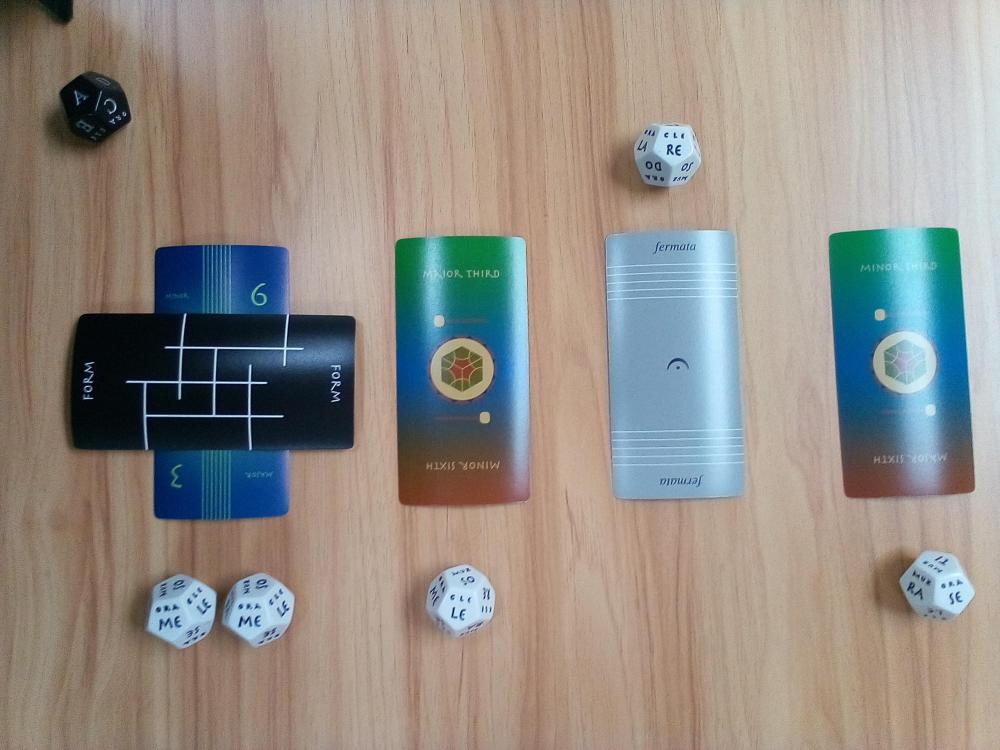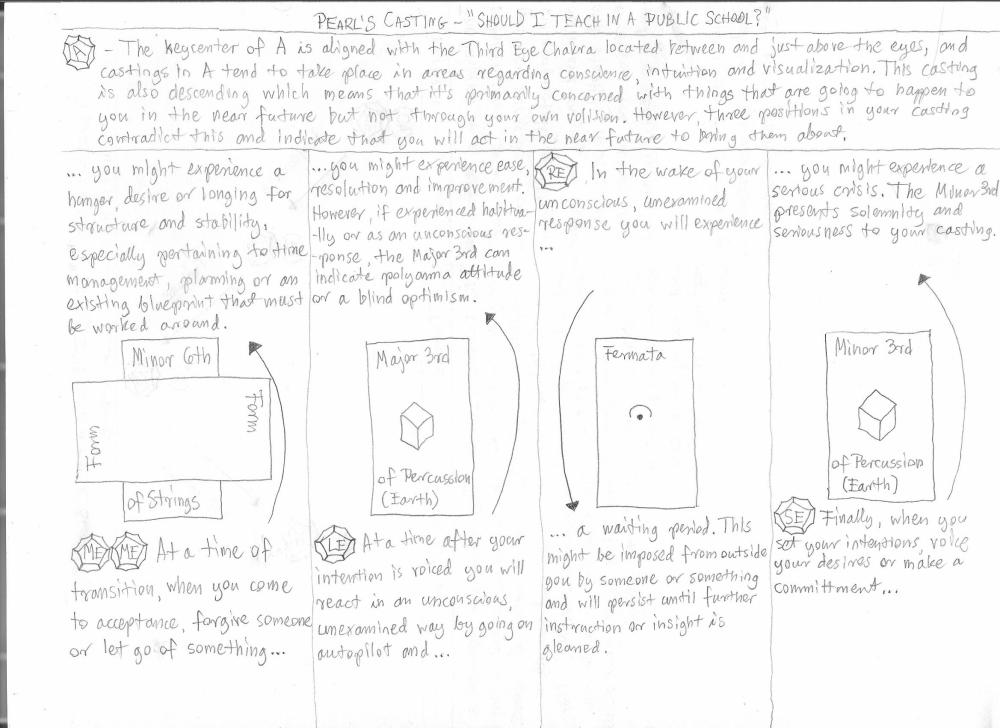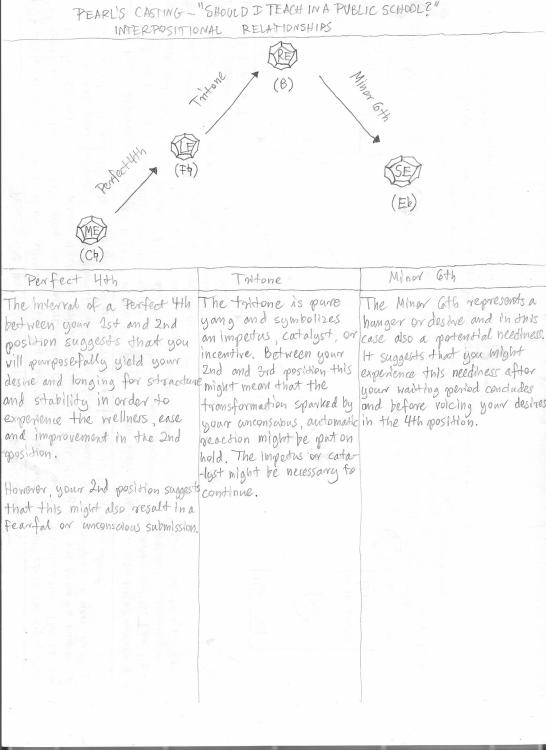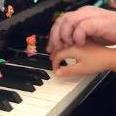Leaderboard
Popular Content
Showing content with the highest reputation on 05/18/2024 in all areas
-
Yes! Such a good point! It's really easy to get bogged down trying to write something great, and you aren't going to. You don't know enough yet. And the only way to learn what you need to know is to write. So let go of all your expectations and just play. Do try to polish things a bit as you go, incorporating things you are learning in class, but don't get so twisted up about it that you can't put a thought down on paper. The more you write the better you will get. What we think are the major composers' first works almost certainly weren't. Those are the first ones that were good enough to be shared with anyone other than immediate friends and family, and the ones that were good enough that people held on to copies. I can guarantee, they all wrote lots of bad stuff before they started writing good stuff. So go ahead and get your bad writing out of the way as soon as possible so you can learn from it and start getting better. You don't have a finite set of ideas in you, I promise! There is an expression in the game of Go (it's a bit like chess), "lose your first 100 games quickly." You are going to lose. You don't know enough to win. So don't overthink each move, just play a lot, and you'll start getting better.3 points
-
Hey welcome oh no Henry beat me to it as usual, I like the Haydn idea, and also maybe explore the main foundations of what makes music music (especially from that era). Scour youtube on the simple things: How to write a melody, harmony, counterpoint, etc. etc. If I were you, I wouldn't write something with the intention of being legendary. Just practice the fundamentals, and write something that works. If the 18th century is your starting point, listen to the "hits" from that period. Find composers you like, and keep your piece concise and simple. Practice the EXECUTION of completing a finished product. Ask lots of questions, and ultimately have fun. That's why we all do this after all 🙂3 points
-
Hello @Eva Browning, Welcome to the forum! Do you listen to String Quartets? If no, I think Haydn’s op.33 quartets would be a good starting point to listen with! That will definitely helps with your quartet writing. Also do you learn the traditional SATB rules? Even though you don’t have to stringently follow the rules when writing, knowing the principle will definitely help. Also, what is the designated length of the piece? That will affect your choice of the musical form of your piece to write. What mood do you want? What key will it be in? Also what style would you love to have? These questions may have you write! And you can also visit our fellow members’ posts, particularly the ones in the Chamber Music forum. They will for sure help with your writing since composers in different levels are all featured here! Thx for joining us! Henry2 points
-
2 points
-
Hey Guys, I hope you're doing well! I have been thinking about AI in music for a while, and I hope it's not a problem to share my thoughts about this field. Here's my (unsolicited) opinion on AI-generated music. Human artists cannot be (completely) replaced by current AI technologies because these technologies lack taste, consciousness, and individuality, and they are unable to produce anything truly new. Additionally, training an AI on 10,000 pieces of good music does not guarantee that it will produce good music itself. However, AI-generated music can be envisioned in projects where quality is secondary and budgets are low. Using AI music can reduce costs, but even a mediocre or slightly bad human composer can often produce better music for minimal pay. Human composers are consciously capable of improving or modifying compositions based on instructions, which is a capability that AI is only limitedly capable of. So, while AI-generated music can be suitable for projects with low budgets and where quality is not a top priority, it cannot fully replicate the unique creativity and quality of human-created music. Of course, these statements concern today's AI technology with neural networks. Neural networks are just mathematical matrices with weights adjusted by error-finding and error-correcting methods. The current AI technology used requires the algorithm that forms the weights in the matrix to receive the correct outcome and perform error correction in each iteration accordingly. However, in the case of music, the correct outcome is partly subjective and the result depends on the musical materials used for training. However, according to current laws, copyrighted materials cannot be used to train music neural networks. It's an interesting case; I'm on Fiverr, where I was offered $25 by a music-generating website for a complete 3-4 minute symphonic piece. Who would create a full symphonic composition for $25? Certainly not Danny Elfman or Hans Zimmer.1 point
-
I have another Muzoracle casting for y'all. (Muzoracle is a storytelling/divination tool similar to the Tarot card deck, but with cards with musical concepts and 12-sided Musician's dice and Solfege dice.) This time, Pearl asked the Muzoracle if she should teach in a public school: My interpretation of the cards and dice are displayed below. The instrumentation of the piece was guided by the suits of the cards drawn. Since the card on the left is a Minor 6th of Strings, I chose Violin as the main solo instrument. Both the card on the middle left and far right are in the suit of Percussion so I chose the Vibraphone to accompany. If you'd like to find out more about Muzoracle and how castings are interpreted go here: https://muzoracle.com/ This short representation of Pearl's Casting is about a minute long. The piece is in A, since the black 12-sided Musician's Die landed on that tonal center. I then made harmonic/melodic underdrawings that I used in the composition of the music. Since the solfege dice landed on Me, Le, Re and Se this corresponded to the tones C, F, B, and Eb. I then used the interval cards to elaborate on the harmony in the ascending or descending direction according to the casting: In order to give the piece some harmonic and melodic contrast, half way through I transposed these figurations by a Minor 6th down since the casting is descending overall and the first card drawn was a Minor 6th: If you've gotten this far, thanks for reading and I hope you enjoy listening to this short chamber work I wrote to represent Pearl's casting. Comments, suggestions, or critiques are of course, always welcome.1 point
-
Hi, this is my first advanced piano solo composition . Would love some feedback. Thank you.1 point
-
Hi all! This is my first post, and I'm looking for a little advice! For context: I've been playing piano for 11+ years and I'm taking AP Music Theory right now. My theory teacher is having us write a composition using traditional 18th-century techniques, with four voices (I've opted for a traditional string quartet). This is my first time ever writing a piece of music for a class (everything else I've done is just playing around on guitar and piano), so I'm super unsure of where to start. I would be incredibly grateful for any advice on how to begin! Best, EB 🙂1 point
-
Hi @Alex Weidmann, I listen to the latest version. I like the general mood of the piece which is apparent in your style: modal, refreshing and airy. I think there could be more passages when the clarinet and violin play together as they only combine at the end. Maybe some imitations between them would be great! On the left hand figuration in b.46 I think it’s too strings-like; maybe using octaves in 16th notes will be better than repeated notes! I like this part’s excitement. The modulation sounds great too, which induces me to think of Mike’s new video on modulations! Thx for sharing! Henry1 point
-
1 point
-
Hi @Giacomo925, Long time no see! I share the same thoughts… my life these few months has been really busy, and I used the only time remaining for composing, so I had no time for reviewing any pieces here…. But now the piece is almost finished so I can review some posts here as rest! On the music, I love most the interaction of the four parts, as every part gets its melodic part. I always think Piano Trio hard to write, it’s easy to get the strings too thin, or making the piano overly hyped, or making the cello boring, but I think you balance well here! Getting to Eb minor in development is nice. Just the modulation from Eb minor tonic minor in b.136 to 138 ab bit abrupt for me. I remember does the same thing in the first movement of his Piani Quartet no.3, but he modulates from Eb minor to B major to G major and then C minor, and he makes use of the drama of the abrupt key changes (to quote @chopin’s video ! (Btw I forget you are named Chopin here….))! For the ending in tonic major, I hope there will be more struggle between the tonic major and minor! B.91 and similar passages can be difficult, but I think it’s playable. Thx for sharing. Can’t wait for the 2nd movement! Henry1 point
-
Many thanks to you both for your comments. I didn't really think about what mood I was trying to set; just let the piece evolve organically. I'm planning to elaborate the piano part some more, and still need to add all my articulation, expression marks etc... Need to be careful not to over-egg the pudding though! The title is open to interpretation. It could simply be about the contrast between night and day; or perhaps about the cycle of history, alternating between periods of calm and periods of turmoil (sometimes called the Saeculum).1 point
-
Not sure anyone's reading this thread; but wanted to provide a new audio file anyway, to match the last pdf.1 point
-
I will just list 2 for each categories haha. On music theory I love “Harmony and Voice Leading” by Aldwell very much! “Introduction to Post tonal theory” by Straus is great too. On Form I love “The Classical form” by Caplin, “Sonata Theory” by Hepokoski, On counterpoint Kennan’s is an essential read and I also like Jepessen’s book on 16th century counterpoint! For music history Taruskin’s history is so great, but I have only read the first two volumes and have the other 3 still in my cupboard…… Henry1 point



.thumb.png.8b5b433a341551e913a34392660bc95b.png)





